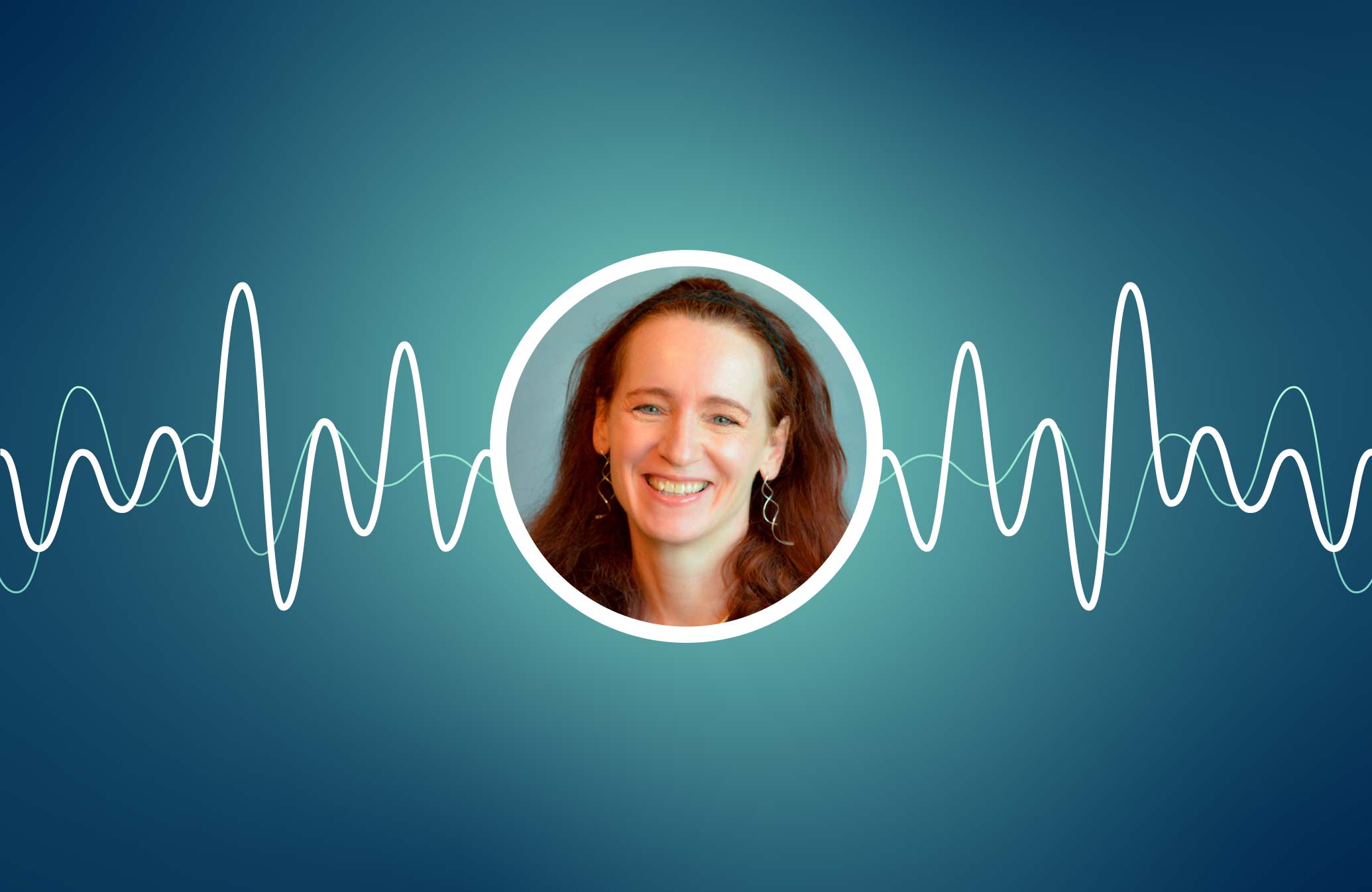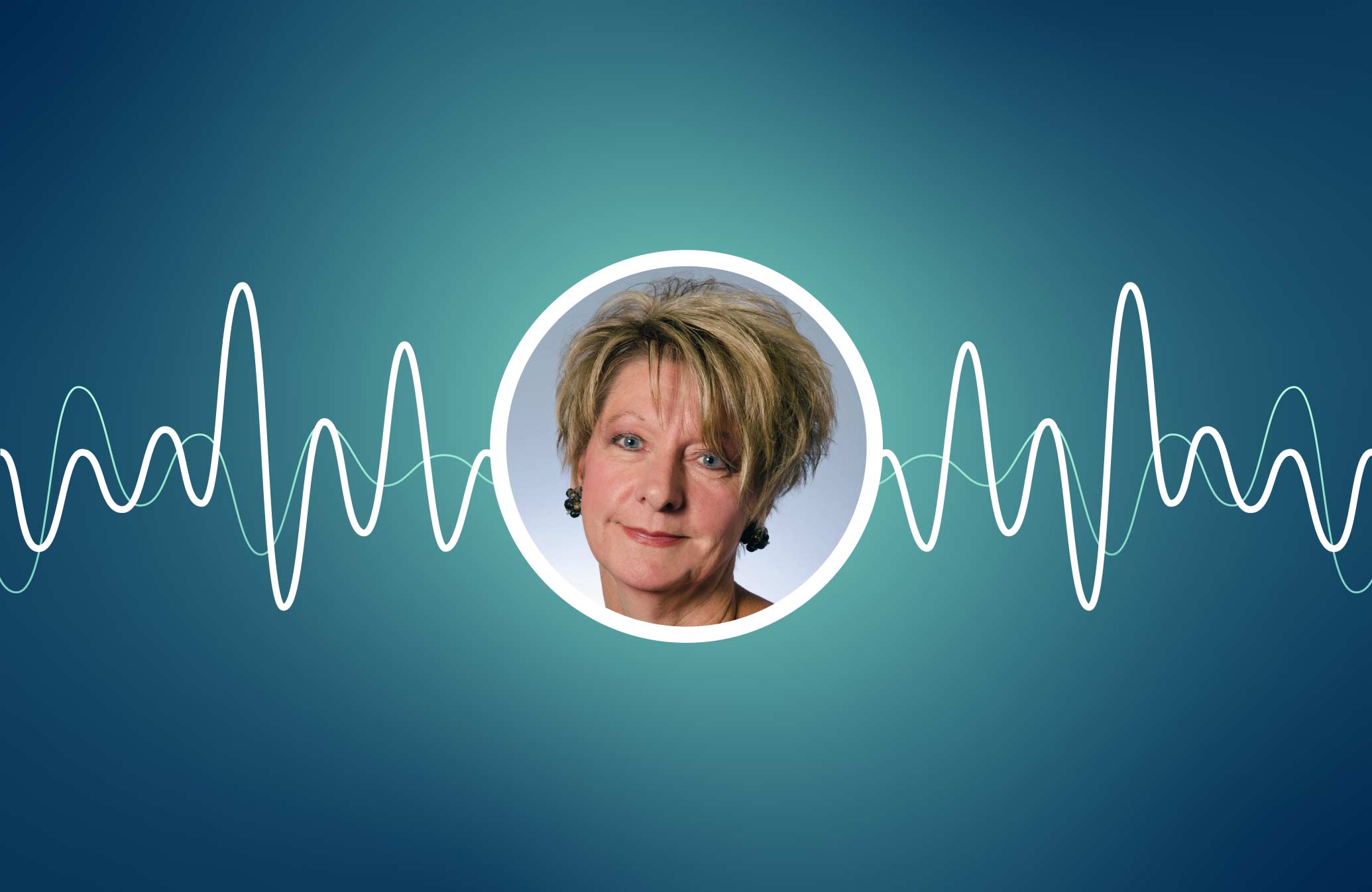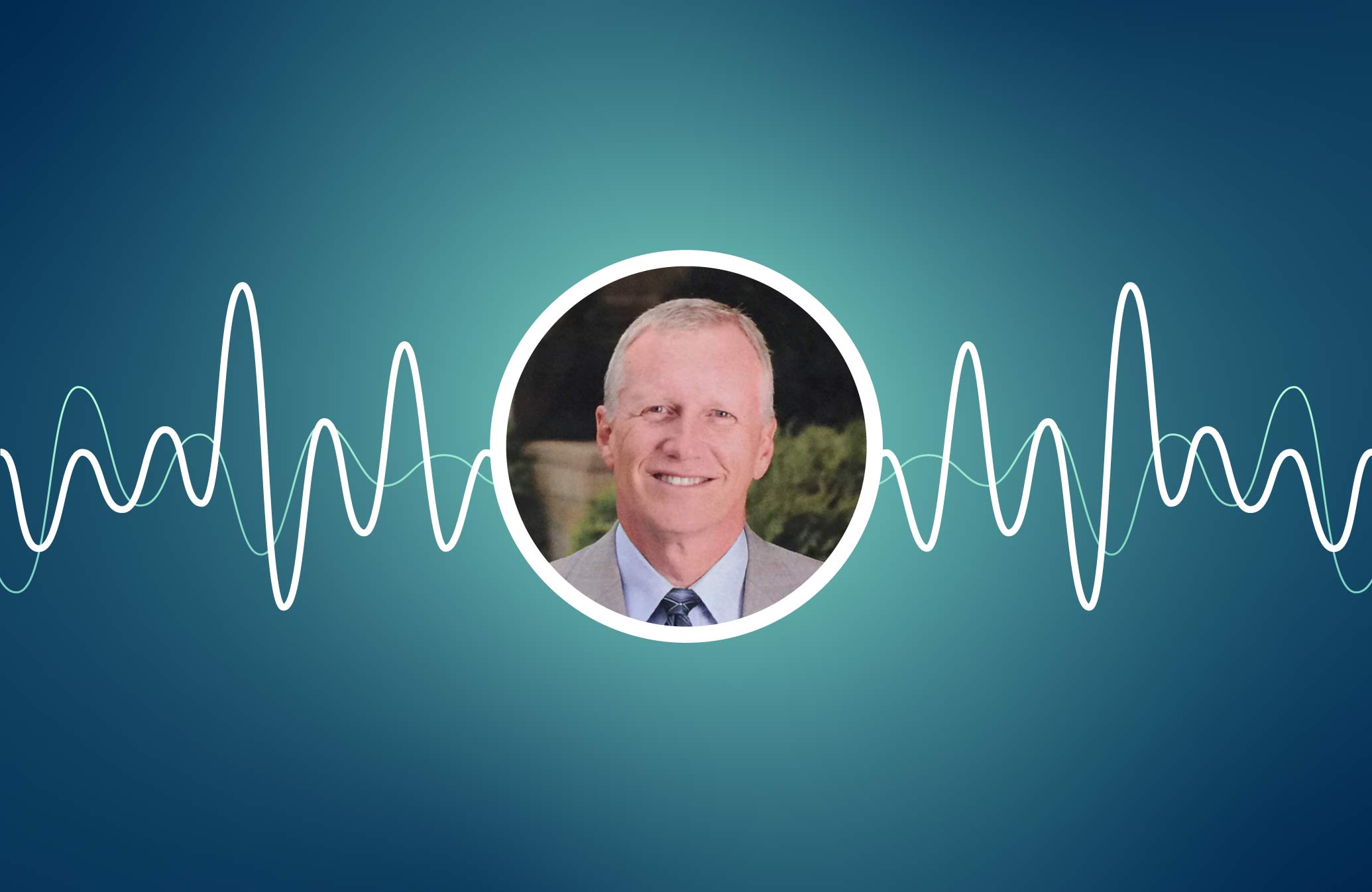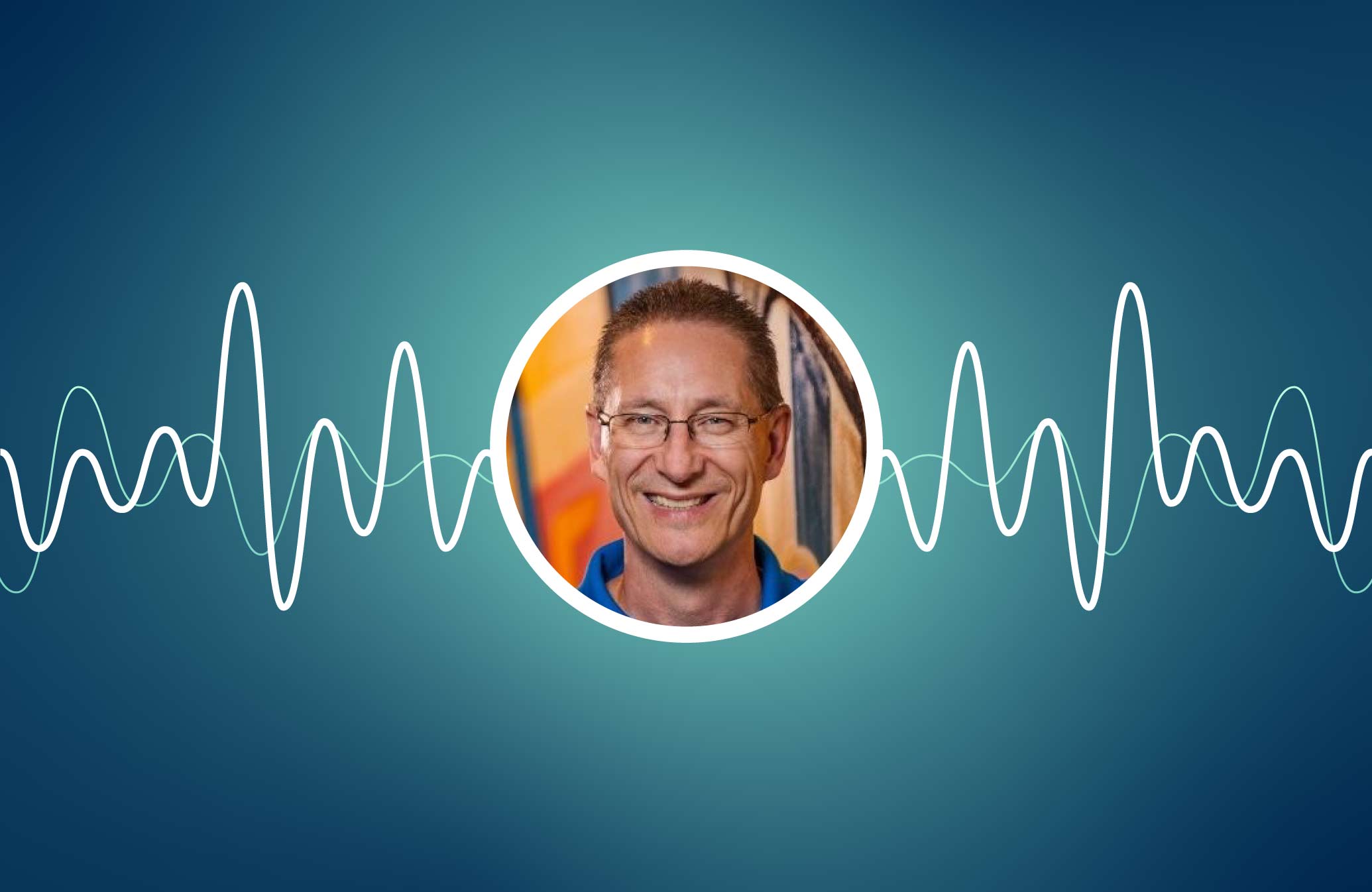Listen Now
Episode Transcript
Announcer [00:00:00] Welcome to RadioRev, podcasting from the heart of healthcare in Minneapolis, Minnesota. This is the podcast for change makers looking to do more than just health engagement. It’s about getting people to take action and do things that actually improve their health. It’s a radical idea, right? So we’re talking with the leaders, innovators, movers, and shakers who are bringing new ideas, inspiring others, and leading the way.
Jenn [00:00:26] Welcome to another episode of RadioRev. I’m Jenn Dellwo. Each year, Revel chooses to partner with a local organization in the Twin Cities around the holiday season to help brighten the lives of those in our community that need it most. This year we are working with Little Brothers – Friends of the Elderly, a nonprofit, volunteer-based organization committed to relieving isolation and loneliness among the elderly. Joining us today is Georgia Afton, Community Outreach Director from Little Brothers – Friends of the Elderly. Georgia takes her professional work and elder services personally. She originally worked for Little Brothers – Friends of the Elderly from 1999 to 2003 as the organization’s Development and Communications Director. To this day, she cherishes the memory of several elder friends made during those years who added joy and meaning and wisdom to her life. Those friendships, coupled with navigating her own parents’ elder years from overseas, drew her back to LBFE in 2015. She now serves as the organization’s Community Outreach Director and is happy to once again embrace the work of ending elder loneliness and isolation through the power of friendship. Originally from the west coast of Ireland, Georgia grew up on a farm and is an avid cyclist. She once bicycled across Europe from southern Greece to northern England. Georgia, welcome to the show. Thanks so much for being here.
Georgia [00:01:37] Thanks so much for having us, Jenn. We really appreciate the opportunity to connect with Revel yet again in partnership, and it’s just a fantastic opportunity to get the word out. We really appreciate it very much, so thank you.
Jenn [00:01:52] Absolutely. So for frequent listeners of our show, we always start with the same question. And that is, what is your favorite ’80s song?
Georgia [00:02:00] Well, Jenn, I’m going to toss you a curve ball on that one.
Jenn [00:02:04] Oh, boy.
Georgia [00:02:05] I’m not going to tell you my favorite 1980s tune, but instead my favorite song to listen to in the 1980s, OK? My father, Michael Farmer, whose nickname was Captain, sang me a different song every day as he drove me to school.
Jenn [00:02:23] Oh, that’s so sweet.
Georgia [00:02:25] Well, he was a real crooner and a real fan of the Rat Pack, and he would have turned 90 on December 18. And my favorite song that he sang me dates back to 1965 and was Nat King Cole’s hit, “Love,” which is so appropriate to our conversation today about Little Brothers – Friends of the Elderly’s mission to end elder loneliness and isolation through the power of friendship. Because what is friendship, if not love? {music plays}
Jenn [00:03:14] Such a thoughtful answer. I love that you tied it back to what we’re talking about today. So let’s dive right into today’s topic. You’ve mentioned, you’ve made some references already, but what is the overall mission for Little Brothers – Friends of the Elderly?
Georgia [00:03:28] That’s really it in a nutshell. Our sole purpose is to end elder loneliness and isolation through the power of friendship. It’s the only reason my colleagues and I come to work every day. It’s the only reason our volunteers walk through the door, ending elder loneliness and isolation through the power of friendship.
Jenn [00:03:49] Perfect. I love that. Tell us a little bit more about Little Brothers – Friends of the Elderly. How did you guys get started?
Georgia [00:03:56] LBFE actually has a fascinating history. The organization was founded in Paris, France, in 1946 in the devastating aftermath of World War II by a man named Armand Marquiset. Among the elder population, Armand recognized that critical needs such as shelter, healthcare, food, and clean water were being addressed. But an equally important, yet invisible need, was going unaddressed. Among the elders he sought to help, most of whom had lost family and friends in the war, nothing was being done about their need for human connection. And out of that realization, Armand made it his life’s mission to end elder loneliness and isolation through the power of friendship. In fact, his dream was to light little fires of love all around the world. And today, that dream is a reality because the organization now serves over 55,000 elders in 10 countries with over 20,000 volunteers. And each volunteer adds their flame, their passion, the warmth and kindness of their friendship to the mission of ending elder loneliness and isolation.
Jenn [00:05:18] Wow, you guys are doing such great work.
Georgia [00:05:20] Thank you. It’s just such an amazing feeling for all of us involved with Little Brothers, especially for us on staff. Every day we get to live this mission and then we have these amazing volunteers who carry out the mission. They’re incredible people.
Jenn [00:05:42] That’s great. Tell me more about the kinds of elder programs you offer.
Georgia [00:05:46] Absolutely. There are three programs that we have in addition to monthly events such as our Cards, Crafts, and Coffee event and our LGBTQ Let’s Do Lunch Cafe. In fact, they’re having their big Christmas celebration at the offices right now, which is really fun. So in addition to events like that, really the crown jewel of our services is our visiting companion program. And that’s where we match volunteers and elder friends one-on-one for the organic blooming of a beautiful friendship. And we also have a phone companion program, which is similar to the visiting companion program, except it’s done over the phone, obviously. And that program is really such an exquisitely important program because for many elders, the only calls they’re getting are a doctor’s office calling to make an appointment, somebody calling to try to sell them something, or God forbid, somebody trying to scam them. So someone who is calling to address you by name to find out how your day was, to share how their day was—it’s magic. It really is.
Jenn [00:07:14] And it seems like such an easy way to volunteer and make a difference because it’s picking up the phone. You don’t have to go anywhere. You can do it from anywhere.
Georgia [00:07:23] You can do it from anywhere, when you’re out walking your dog, when you’re even walking around the grocery store. You can make such a difference. So as an organization, we make a forever friendship commitment to the elders that we serve. The only criteria we have are that elders be 65 years of age or older and experiencing some degree of loneliness and isolation. So an elder might be at the age of 65 who’s living independently. They may be matched with a visiting companion and a phone companion. So let’s fast forward 30 years when that elder is 95. They may be living in a nursing home. They may be living on a memory care unit, as was the case with my own mother. And if they’re both elders, they don’t have the mobility to connect with a visiting companion. They don’t have the hearing, perhaps, to engage in a meaningful phone conversation. But they still have that invisible, critical need for the warmth and kindness and human connection. And so we have a wonderful program called Friendship and Flowers. And every month we have volunteers who bake beautiful home-baked treats for us. We pair those with fresh-cut flowers. And then we have Friendship and Flowers visitors who come in and take those flowers and treats, wrap them up in the warmth and kindness of their friendship, and bring them to elders who are, as I say, primarily living in nursing homes.
Jenn [00:09:04] That’s great to have different levels of options available to people.
Georgia [00:09:08] Absolutely. Yeah, we tried to make it as flexible as we can for volunteers. And the visiting companion program is really flexible, too, because just as in any friendship, the elder friend and the visiting companion, they get to set the schedule when it works for them. We just ask that the volunteer, at a minimum, sees the elder face-to-face twice a month. Also they can add phone calls into the mix and cards into the mix and so forth.
Jenn [00:09:44] So that’s great. Can you share some insights into how isolation and loneliness affect people, especially the elderly community?
Georgia [00:09:53] Yes, that’s a great question. Thank you for asking that. The situation is serious. And let me widen the scope of your question to societal impact and then circle back to a story of a single elder’s struggle with loneliness. When we think of national health epidemics, we tend to think of issues like vaping or the opioid crisis. But elder loneliness and isolation is also a national health epidemic with huge and concerning ramifications. More than eight million adults over the age of 50 are affected by isolation, with more than 10,000 people turning 65 in the U.S. every day. It is urgently concerning that lonely people have a 64% increased risk of developing dementia, tied to the disturbing fact that 26% of adults face increased risk of death due to subjective feelings of loneliness. And furthermore, according to the AARP Public Policy Institute, Medicare is currently spending $6.7 billion more a year to treat elder citizens than would be necessary had such elders the social support network under them vital to healthy aging.
Jenn [00:11:24] Wow, those are some big and powerful stats. So moving beyond that. What about loneliness up close and personal?
Georgia [00:11:34] Absolutely. So, Beth, whose story I’ll tell you, is not unusual at all. Here’s the level of isolation she was facing prior to becoming a member of Little Brothers – Friends of the Elderly. So here’s the context of her life situation. She’s 77 years old. She lives alone in a downtown high-rise in Minneapolis, not very far from the Revel offices here. Her income is below the poverty line, and she’s confined to a wheelchair. Beth was this marvelously gifted clothing designer. For decades, her passion as well as her job was creating beautiful clothes. And as she aged, arthritis and failing eyesight took that wonderful creative outlet and passion away from her. Her other grand passion in life is baking. But because she has a very small apartment with a very small kitchen, and she’s in a wheelchair, navigating high cupboards and appliances, you know, reaching up into the fridge to get the butter, can be really a challenge. So she doesn’t get to do that all that often. Well, not until she had a visiting companion to do it with. She’s also a widow of 22 years. And her only daughter lives overseas. Visits are rare. Phone calls are rare. Letters are rare. So that’s the context of Beth’s life. So here’s what a typical week looked like for Bath prior to her connecting with a visiting companion through Little Brothers. Picture this, a knock on the door. Beth navigates in her wheelchair to the door. Opens it. On the other side of the door is a young man delivering her groceries who does not have time even to share his name with her. That is the total social contact that Beth was having in a week. Now, that is tantamount to solitary confinement.
Jenn [00:14:09] Right, absolutely. Thank you so much for sharing a personal story, because I think you can talk about the organization and the type of work that you do, but it doesn’t become concrete until you hear an example of what actually is going on.
Georgia [00:14:21] Absolutely. And we have so many wonderful elders. I was chatting yesterday…we have this wonderful gathering with a corporate partner who’s volunteering at one of our elder-care facility partners. And in the course of this activity we’re doing, this elder—we were sharing fun facts from our lives—it turns out that his X, X, X great-grandfather missed the train to get on the Titanic to come to America. That was the only reason he was sitting with us.
Jenn [00:15:05] Wow, what a story.
Georgia [00:15:08] So we hear all sorts of wonderful fun facts. And that’s why visiting companions tell us over and over again that they get so much more out of the friendship than they would ever, ever have imagined, because they’re tapping into the wisdom and experience of these elders whose lives are so, so rich.
Jenn [00:15:30] Absolutely. Can you even imagine what that man must have thought once he found out that the Titanic sank? That just had to have been the worst feeling for missing the train, but then the best feeling for not making it. So throughout your website, you talk about the importance of community and your network of volunteers. Can you tell us why it’s so critical that people volunteer?
Georgia [00:15:54] Well, specific to our mission to end elder loneliness and isolation, there simply aren’t enough friends and family living locally to fill the void that is elder loneliness and isolation. We, at Little Brothers, have a tiny staff, so volunteers are absolutely vital to our work. In fact, volunteers are not only the heartbeat of our efforts, they are also the boots on the ground waging war on elder isolation by the simple act of bringing joy and happiness into lives that were once dominated by loneliness.
Jenn [00:16:36] And as I mentioned at the beginning of our conversation, Revel partnered with your organization this year. And our team made blankets for the elders in the Little Brothers community. What are those blankets used for?
Georgia [00:16:49] Well, let me start by giving a huge shout-out to Revel because you set the record, you set the bar, for the number of blankets, 46 blankets.
Jenn [00:17:01] We’re very competitive. So it’s no surprise we have more for you now today. I don’t know if you saw those in the lobby.
Georgia [00:17:08] I heard that! Well, I don’t know if you want to call it competitive. But you also care. You also really, really care. I mean, you’re a busy office, a busy corporation, yet you take time. You are a model for other corporations out there who I think could learn a lot from the example you set. And we just really, really appreciate that.
Jenn [00:17:38] Absolutely. Well, we had a ton of fun doing it, too, because even if people could only take 10 or 20 minutes out of their day, every single one of those blankets was made by multiple people. So there’s a lot of love and effort and care that went into making those, and a lot of fun.
Georgia [00:17:54] And, you know, you did this for us a couple of years ago.
Jenn [00:17:57] Yeah, that’s right.
Georgia [00:17:58] And we got the most wonderful card from an elder saying how much she appreciates the blanket, and how she used the blanket. She said, “I use it during the day when I’m watching television. I snuggle with it at night. It keeps me warm and cozy, keeps me warm and cozy physically. But it also keeps me warm and cozy in my heart because I know somebody made it for me. Just for me.” So how we actually use the blankets, it’s really fun actually, because when we have volunteers come in for the volunteer training, about halfway through training, we start talking about ice breakers, and then we say, “We have a wonderful surprise for you. Arrayed on the back table here you will have noticed that we have all these beautiful fleece blankets. And what we want to invite you to do is take one of those blankets with you and bring it as a gift on your first visit to your elder friend.” So that’s the impact that Revel is having by making these blankets.
Jenn [00:19:12] That’s a great story to hear, too, because it was fun to make, but it’s even more fun to hear how they’re used. So that’s how Revel was able to get involved. How, on a personal level, can people get involved with Little Brothers – Friends of the Elderly?
Georgia [00:19:26] Well, we are always in need of visiting companions and phone companions and Friendship and Flowers visitors. And right now, heading into Christmas, we also have a really wonderful opportunity through our Home for the Holidays effort. So, again, it’s a little bit like Friendship and Flowers. Actually, I was at an event again with Express Scripts at Ridgeview Terrace. We were at that location and the elders and the volunteers decorated 200 cookies—Christmas cookies. They are beautiful. And we’ll add those to hundreds of other cookies that we will pair with a fresh-cut flower and a gift. Thrivent stopped by yesterday. I cannot tell you—we didn’t have enough room to place all the gifts that they made for our elders. So we’ll pair the gifts, the flowers, and the cookies. We’ll put all those together, and then we have the Home for the Holidays visitors who come in, wrap those beautiful things up in the warmth and kindness of their friendship and take them to deliver to elders. And we really do need more Home for the Holidays visitors. We’re inundated with cookies at this point, but we do have a need for folks who will do a visit on Christmas Eve or Christmas Day, and they just come in and pick the goodies up with us prior to Christmas.
Jenn [00:21:04] Great. Is there a deadline for when people need to volunteer for that?
Georgia [00:21:09] You know, thanks for asking that question. If people are interested in doing that, they should get to it fairly soon, because we have to do a background check. So soon, sooner rather than later. We’d hate to have somebody call on, you know, December 18 and have to turn them away because we wouldn’t have time to do the background check.
Jenn [00:21:35] Sure. OK. So looking ahead, with a new decade upon us, 2020 is coming. What are your biggest priorities for the New Year? Or the new decade even?
Georgia [00:21:45] I love that question. And looking ahead to 2020, there’s actually a combination answer to that question: reaching more elders and reaching more volunteers to serve them. And in fact, in the last couple of quarters, we’ve launched a Wheel of Friendship initiative, and that’s designed to get the word out to more elders. And it’s proving so successful that we really want to expand that effort in 2020. And in tandem with that, we’ve got some great corporate partnerships going with companies like Revel, Thrivent, Express Scripts, Optum Health, and Medtronic that have given us an opportunity to create some really flexible and meaningful opportunities for busy professionals so they can have a chance to make a real impact, too. So in 2020, we really want to expand our reached corporate volunteers.
Jenn [00:22:43] Which I think now is a really good time to be doing that because more and more companies and more and more people looking for jobs are looking for companies that are philanthropic and that do volunteer work and give back to the local community. So it seems like the right time to go after corporations who are thinking about those things more actively.
Georgia [00:23:02] Absolutely. You’re spot on in that observation.
Jenn [00:23:07] So if people can take away only one thing from this conversation and one thing about Little Brothers – Friends of the Elderly today, what do you want people to know?
Georgia [00:23:17] I would say I think the fact that we are all elders in training and the fact that at the end of the day, it’s not the job you have, the education you get, the house you live in, or the status you achieve that matters most. It’s the relationships you have that are the most meaningful aspect of our existence. Little Brothers – Friends of the Elderly is alone in its sole focus on ending elder loneliness and isolation. And the good news is that unlike the opioid epidemic, the loneliness epidemic is something that every single one of us can do something about. And we offer volunteers an opportunity to do just that. In addition to more volunteers, we need more great corporate sponsors like Revel that help us reach a broader audience of potential volunteers and potential elders, too.
Jenn [00:24:18] I love how you say we’re all elders in training. Because it’s true, and it gives you the opportunity to think, “How would I want to be treated when I get older, and why don’t I start doing those types of things now so that I can have the same experience when I’m at that point?”
Georgia [00:24:38] Right. It’s a little bit like pay it forward in reverse.
Jenn [00:24:41] Sure. Yeah, absolutely. That’s a good way to think about it.
Georgia [00:24:44] Right.
Jenn [00:24:45] All right. So before we wrap up, personally, last question: What’s the coolest thing you’ve done lately?
Georgia [00:24:54] You know, just the other day when I was at Ridgeview Terrace for the cookie-decorating extravaganza that I was sharing about, I met a wonderful gentleman named T.R., and he was just actually sitting in the lobby. He was not interested in coming in and decorating cookies because that’s big groups, not his thing. But we got into this incredible conversation that I found so personally enriching. Like me, he loves literature, writes poetry, and in addition to those things, he is also a real music aficionado. And it was just so fascinating to talk with him. He talked about Paul Simon and the fact that there’s a line from Paul Simon that says something to the effect of “I have my books and my poetry to protect me.” And he’s a man who doesn’t have a lot of family or friends around but is so looking forward to connecting with a visiting companion through us who I actually would love to be, who loves literature and loves music. And he was just so…I just walked away on air after my conversation with him because he was just so fascinating. He had such a rich inner life and was so creative that it was very inspiring.
Jenn [00:26:33] I love that the coolest thing you’ve done lately was have a conversation with someone, because it’s so true. You can have incredible conversations when you’re least expecting it. That can be the coolest thing that happens to you.
Georgia [00:26:44] That’s absolutely right.
Jenn [00:26:45] Well, Georgia. Thanks so much for being here.
Georgia [00:26:49] Oh, thank you so much, Jenn. And thanks again to everybody at Revel for the blankets and for inviting us to share more about what Little Brothers – Friends of the Elderly does to end elder loneliness and isolation through the power of friendship.
Announcer [00:27:06] Thanks for joining us for the RadioRev podcast, brought to you by Revel. If you found today’s conversation as informative and energizing as we did, please take a moment and subscribe to the podcast. As always, we invite you to learn more about us and check out all of our content at dev-revel-health.pantheonsite.io/RadioRev.
Inside the Episode
Each year Revel chooses to partner with a local organization in the Twin Cities around the holiday season to help brighten the lives of those in our community that need it most. This year, we worked with Little Brothers – Friends of the Elderly (LBFE), a non-profit volunteer-based organization committed to relieving isolation and loneliness among the elderly.
In this episode of RadioRev, we sit down with Georgia Afton, Community Outreach Director for LBFE to talk about the mission, programs, and incredible work this organization is focused on. Discussion points include:
- How isolation and loneliness affect the elderly community
- The importance of community in supporting the elder population
- The best ways to get involved and help seniors live their best lives
To keep the conversation with Georgia going, connect with her through LBFE.
“Elder loneliness and isolation is a national health epidemic with huge and concerning ramifications. More than 8 million adults over the age of 50 are affected by isolation, with more than 10,000 people turning 65 in the U.S. every day.”
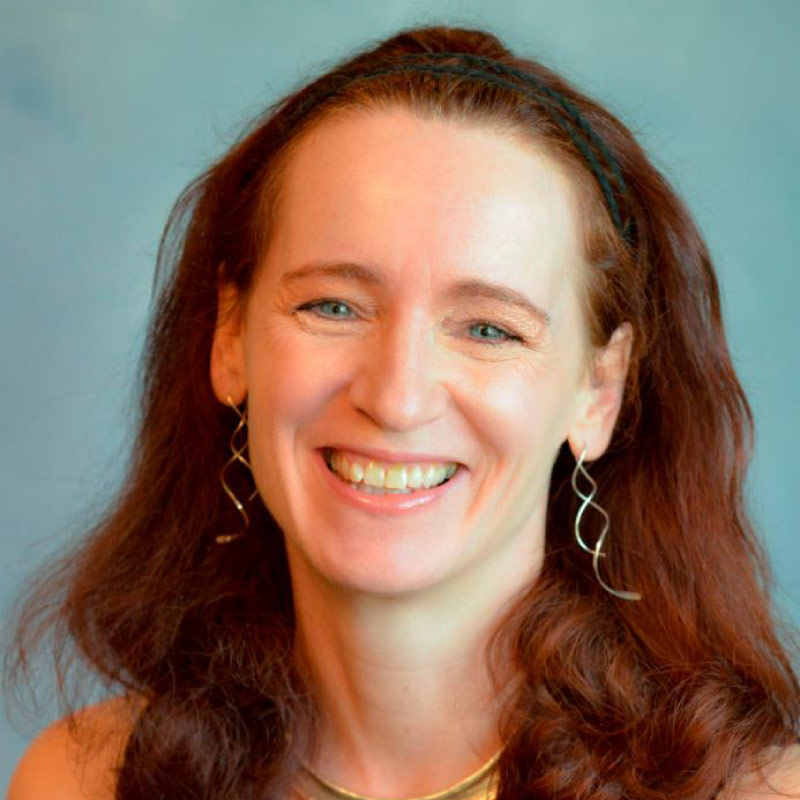
Georgia Afton
Community Outreach Director at Little Brothers – Friends of the Elderly
Can’t get enough of RadioRev?
Check out all of our episodes to stay up-to-date on the latest in healthcare innovation, social determinants, and health action.

